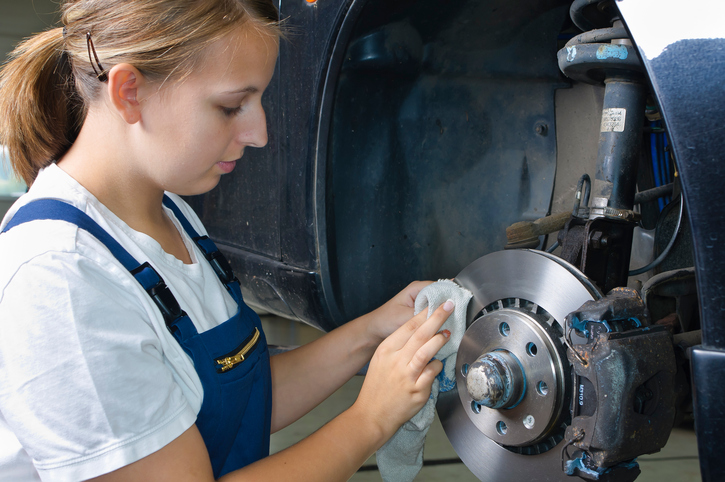
Cars both new and old can wind up with defective parts. Whether through a production error, as a result of wear and tear, or because of some other circumstance, it’s not that uncommon for important components of automobiles to fail. And when they do, experienced mechanics get them fixed back up.
Curious about the kinds of defects you’re likely to see throughout your future career? Here are some of the most common defects that are found in cars today.
1. After Auto Mechanic Training, Expect to See Many Defective Door Latches
One of the most common defects found in modern cars is a broken door latch. Relying on moving pieces, springs, and locks to work properly means that door latches have several points of failure. If any of those elements isn’t working properly, it can prevent a door latch from opening and closing the way it should.
The consequence of a defective door latch could be a door that is difficult or impossible to close or open, making it a pretty serious safety hazard. When completing vehicle inspections after you become an auto mechanic, it won’t be a bad idea for you to make sure all of a car’s latches are working the way they should.
2. Cracked Windshields Are Also Pretty Common and Should Be Dealt With Quickly
It’s all too common for some tiny pebble to get thrown up by a passing truck and then strike and crack a windshield. While some drivers will keep driving with their windshield cracked, doing so really isn’t advisable. That small defect will only get worse over time, and weaken the integrity of the windshield. In an accident, not having a windshield at full strength can increase the odds of serious injury occurring.
The longer customers wait, the more likely a crack or chip is to become filled in with dirt, grime, or fluids. This can make it more difficult to repair and, you guessed it, further weaken the integrity of the windshield. For their safety, and to save them from a heftier bill, it would be kind of you to advise your future clients to get this sort of defect repaired as quickly as possible.

3. Expect to See Many, Many Defective Braking Systems After You Become an Auto Mechanic
Monitoring and fixing brakes is one of the most common tasks that mechanics perform, so expect to do a lot of it after automotive training school. As important as they are, brakes are basically pads that press against tires to get them to slow down. That means they are subjected to a lot of friction and a lot of heat. Over time—less time if people ride their brakes hard—this causes them to wear down, lose effectiveness, and possibly even fail. In situations where quick braking is required to avoid an accident, this can be very dangerous. By replacing any defective brakes you come across, you’ll help boost the safety of drivers everywhere and keep roads safe for everyone.

Auto mechanic training is a great way to get started working with cars.
Interested in signing up? Visit CATI to learn more about enrolling!
